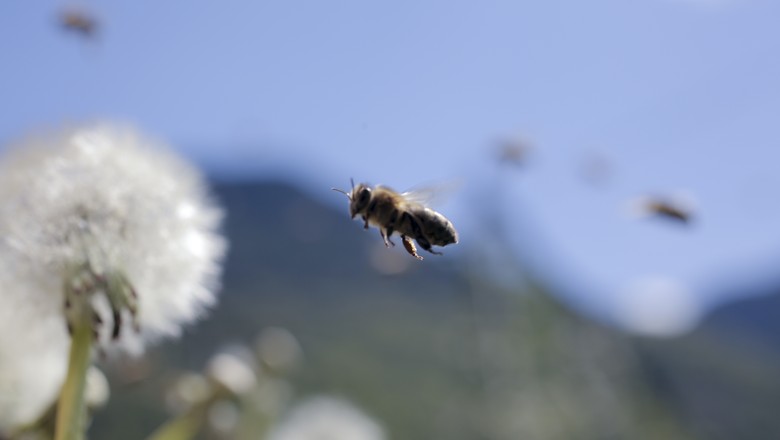
Petition against pesticide use reaches more than 1 million signatures
Na Europa, one million signatures on Bayer pesticide petition, 'Killer bees’
“Kill bees does not truly part of the things that a company that cares about the future should do”, disse à AFP Anne Isakowitsch, militante da ONG Sum of Us.
Without bees, contributing to pollination 80% species of flowering plants, these could not reproduce. And without flowers, no fruit, which would change the entire food chain.
The greatly worries Anne Isakowitsch situation, Berlin one who attended the Friday meeting of shareholders of Bayer in Cologne (west) to give the group a global petition signed by 1,4 million people.
These two Bayer products are subject to a moratorium imposed by the European Union since the end of 2013, as well as thiamethoxam, Syngenta's Swiss, to fipronil, German BASF. Around the world, these four substances, sold by brands such as Gaucho, Poncho or Cruiser, continue to be used without restrictions.
other causes
The neonicotinoids are usually applied on the seeds planted by farmers and infiltrating later on nectar and pollen during flowering.
The substance would cause the loss of orientation of bees, who can not find their hive, a reduction in fecundity or disease resistance lower, second scientific literature. Besides, Nature magazine ensures that the bees tend to prefer wet plants with these substances, derivatives of nicotine.
The neonicotinoids would “a key factor in the decline of bees” and other pollinators, According to an analysis of 800 studies done by the International Union for Conservation of Nature (UICN). Around a quarter of beetles and almost one in ten honey bees face extinction, according to the organization.
But Bayer, who won 2,5 billion euros in 2015 with its products insecticides and seed protection, including neonicotinoids and other items, rejects accusations.
“The neonicotinoids do not cause any risk if used properly”, He said a company spokesman told AFP.
Together with BASF and Syngenta, the challenged group in the European justice the moratorium imposed by Brussels.
The group points out other culprits for the suffering of bees: meteorology, including viruses and the parasite 'Varroa destructor'.
“The decline of bees is multifactorial”, said Jose Tarazona, director of the pesticide department of the European Food Safety Authority (EFSA).
This body decided in 2012 the four pesticides of the three companies as a risk “unacceptable” for the bees, giving arguments to the EU for the moratorium.
“not yet have the means to quantify” the role of these products, admitted, However, Tarazona.
EFSA is doing an inventory on the subject, whose results are expected to 2017 and that could lead Brussels to extend the restrictions, keep them or decide to withdraw the moratorium.
“logically, pesticides are not the only problem (..) But they are the only one in which we can intervene immediately”, defended Marco Contiero, in charge of agricultural policies of Greenpeace.
The NGO expects the EU to ban the group of neonicotinoids and their uses, no exceptions, and asks the industry to invest in non-chemical alternatives.
Besides, consumer pressure begins to be noticed. In Germany, the Aldi supermarket just commit not to sell more food with neonicotinoids.
Source in Brazil: http://dc.clicrbs.com.br/sc/noticia/2016/04/um-milhao-de-assinaturas-contra-pesticidas-da-bayer-assassinos-de-abelhas-5789913.html
one million signatures on Bayer pesticide petition protect bees.

Sorry, the comment form is closed at this time.